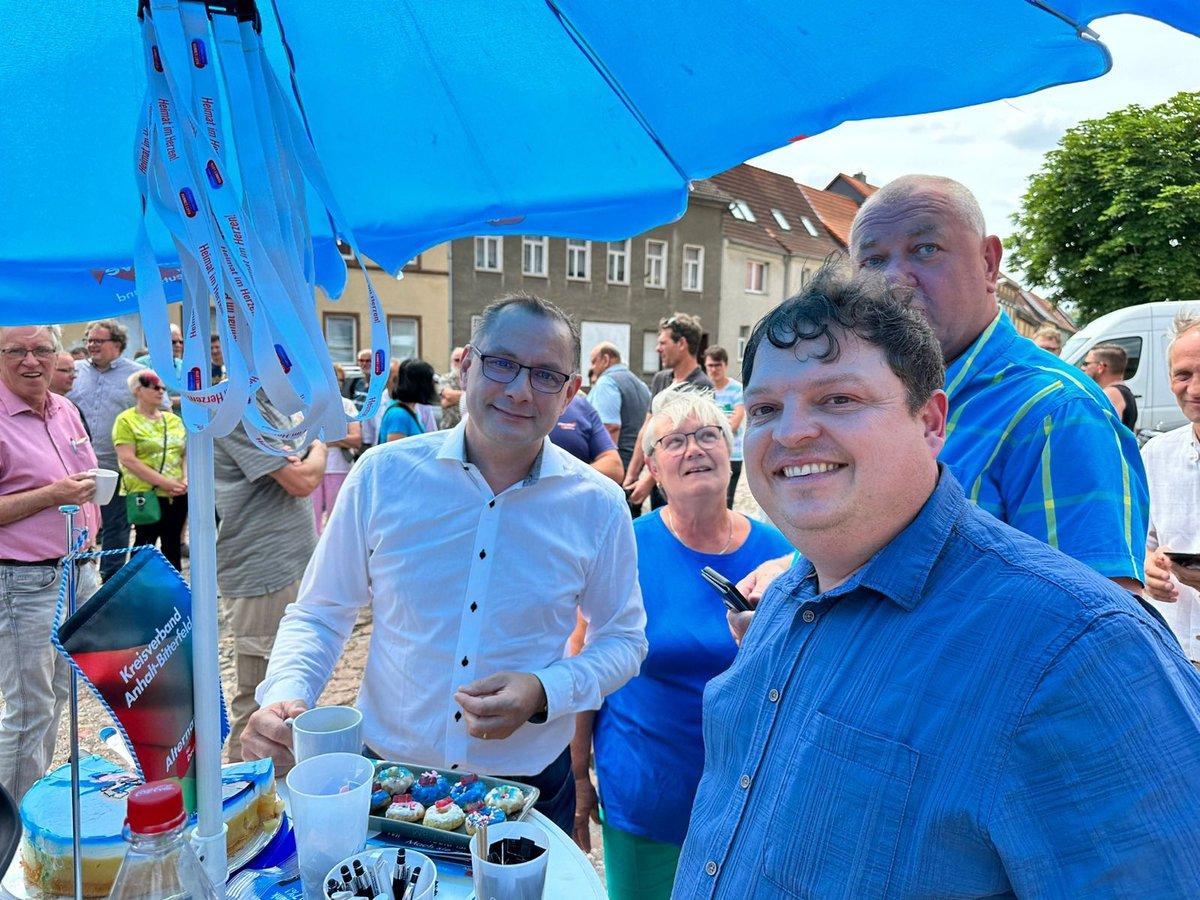News Analysis: Alternative for Germany gets record support. The reason for the growth is discussed again. But maybe new answers are needed?

Hannes Luth (X) was recently elected as the first mayor of the far-right AfD party, in the small town of Raguhn-Gesnitz in Saxony. The place has 9,000 inhabitants.
This summer, the far-right Alternative for Germany party has dramatically increased its support. Only the CDU/CSU is the largest. They are now in opposition.
But why is this happening now? And as usual it is often because of the eastern states. The dictatorship of the German Democratic Republic ruled there until 1989. The Alternative for Germany party did The biggest party.
Economic differences between East and West are often highlighted. Or do people here not understand what democracy is?
But the population in the West is five times greater than in the East. 71.7 million people live in the West. 12.6 million live in the east. When the AfD gets more than 20% in nationwide opinion polls, other explanations are required.
grows in the West
In Bavaria, the country’s richest state, the subsidy is now 14 percent. In the fall, state elections are held there.
For the AfD, immigration issues are always a topic. But the demand for successive social changes also attracts voters.
- The pandemic has increased distrust of the authorities. The demonstrations at the time also brought people on the political fringes together.
- The war in Ukraine and the fact that Germany supplied weapons is disputed. It’s partly about Russian friendliness. Another justification is that Germany should not get involved in a dangerous war.
- Inflation makes people less able to afford it.
- The transition to renewable energy affects both industry and individuals. What price will be asked? It is worth noting that when the Alternative for Germany party recently put forward prof ten-point programmeFive of the points dealt with energy.
Record low confidence in the government
Political scientist Julia Rauschenbach has researched why people vote for the AfD. In the weekly newspaper Die Zeit Podcast She criticizes obscure government communications.
The three parties, the Social Democrats (SPD), the Greens, and the Free Democratic Party (Liberal Democrats) are facing internal disagreements. And at the same time distrust Triumvirate It wasn’t very high. The same applies to distrust the state.
Roschenbach’s advice to the parties is to be more visible. Politicians must present clear alternatives. And they must not imitate the AfD, either in promises or in language. Experiences from other countries show that people prefer originals over copies. She points out that such a strategy only serves to increase the legitimacy of the far-right.
Is the firewall faltering?
All major parties agree to keep the firewall against the AfD intact. And no one will cooperate with them.
The AfD has just got its first mayor. He was elected for the constituency of Raguhn-Gesnitz in Saxony. The place has 9,000 inhabitants.

Party leaders Tino Shrubala (X) and Alice Weidel celebrate the progress of their party, the Alternative for Germany. The photo was taken on August 6th.
Around the same time, CDU leader Friedrich Merz’s remarks caused an uproar. He emphasized that the firewall must be maintained at the national and state levels. The fact that he did not mention a domestic plan was interpreted as an opportunity to cooperate with the AfD. The protests were huge, and Merz later tried to calm down.
Isolating and berating the AfD reinforces the AfD’s rhetoric. They love to talk about being outcasts.
On the other hand, it is inconceivable for the German Democrats to cooperate with a party they consider to be far-right. This dilemma will continue to characterize German politics.

“Organizer. Social media geek. General communicator. Bacon scholar. Proud pop culture trailblazer.”
